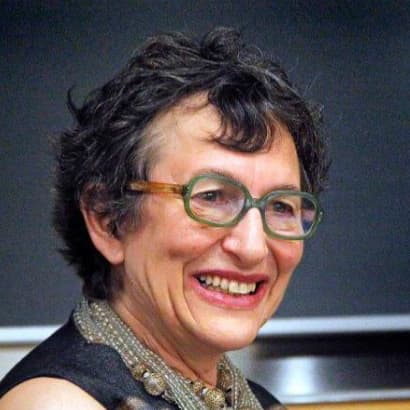Advertisement
COMMENTARY
Secrecy Isn't The Same As Privacy: Why Some Women Don't Talk About Their Abortions

Public discussion of abortion in the United States — on airwaves, by Pence, outside clinics — is often aggressive and usually loud. In contrast, we hear almost nothing from women who end their unwanted pregnancies. Most don't talk about it, even to their friends, except maybe very good ones who drop them off or pick them up afterward. Young women don’t always tell their parents; mothers rarely tell their children; and not all wives tell their husbands.
Many women with insurance pay out-of-pocket so that procedure won’t go into the insurer’s computerized database. Some women with family doctors don’t talk to them about their abortions, traveling instead to a physician further from home who doesn’t know them. Even clinic waiting rooms risk unwanted exposure. As one patient explained, “You don't want to know who's here, you don't want to be recognized, and you don't want to see them ever again.”
One way to describe these various forms of concealment is as an exercise of privacy. By “privacy,” I mean information that falls within a zone of personal control that is the person’s alone to reveal, not because it must be hidden but because it is nobody else’s business. Despite our hugely confessional culture, there is still an established notion of a “right to be left alone” which most people expect as part of their social due. Sissela Bok characterizes this aspect of privacy as “control [over] access to what one takes … to be one’s personal domain.”
Young women don’t always tell their parents; mothers rarely tell their children; and not all wives tell their husbands.
Abortion is understandably just such a matter — one involving bodies, sex, reproduction and medical treatment that is a woman’s alone to reveal, share or tuck away: This is the essence of privacy. After all, the Supreme Court in Roe v. Wade founded the abortion right on a constitutionally protected “right of privacy.”
Yet there is another way to characterize why so many women keep their abortion intentions or histories to themselves: not as privacy but as secrecy. Secrecy suggests that it is better to keep a matter to yourself, not because you prefer to do so, voluntarily, but because you fear if you do not, harm will follow. Women often keep abortion secret because of the prospect of harm if they don't: Harassment, stigmatization, fear of violence or loss of relationships are real concerns. Clinic protesters armed with nothing more than smartphones have posted patients’ pictures online, contacted the parents of pregnant minors and sent abortion patients (not to mention providers) hateful, threatening literature in the mail.
Moreover, what the Supreme Court called “the specter of exposure” lurks over time. Questions about past abortions have turned up in connection with employment applications, political campaigns and custody fights. These suggest the pressures that move women's silence about abortion from a preference for privacy into a perceived need for secrecy. The law itself recognizes this need and explains why women challenging abortion laws in court are permitted to use an alias: Norma McCorvey became the anonymous Jane Roe.
People approach the abortion debate on the basis of personal experience. The absence of abortion talk -- even among intimates -- distorts the nature of public debate, which in turn, distorts the political discourse that informs the legislative process.
The distinction between abortion privacy and abortion secrecy matters tremendously in how women experience deciding about abortion, the procedure itself and its social aftermath. Shame makes everything harder. But abortion secrecy also affects how abortion is discussed at more public levels. People approach the abortion debate on the basis of personal experience. The absence of abortion talk — even among intimates — distorts the nature of public debate, which in turn, distorts the political discourse that informs the legislative process. Consider how marriage equality debates — and law — changed as people, including congressmen and constituents, learned that their own children were gay.
I am not saying privacy is always good and secrecy bad. What matters, however, is that we recognize the qualitative differences between these two modes of concealment when the subject is abortion. When set alongside privacy, secrecy reveals itself as far more ominous — more psychologically taxing and socially corrosive — even if it makes the secret-keeper feel more secure. Nothing would be better by my lights than to relocate abortion from the darker realm of secrecy to privacy’s more voluntary domain, where women could talk about their experiences, or not, as they pleased, but for reasons other than the fear or threat of harm. Women are not empowered by exercising "privacy rights" when privacy is really secrecy in disguise.
